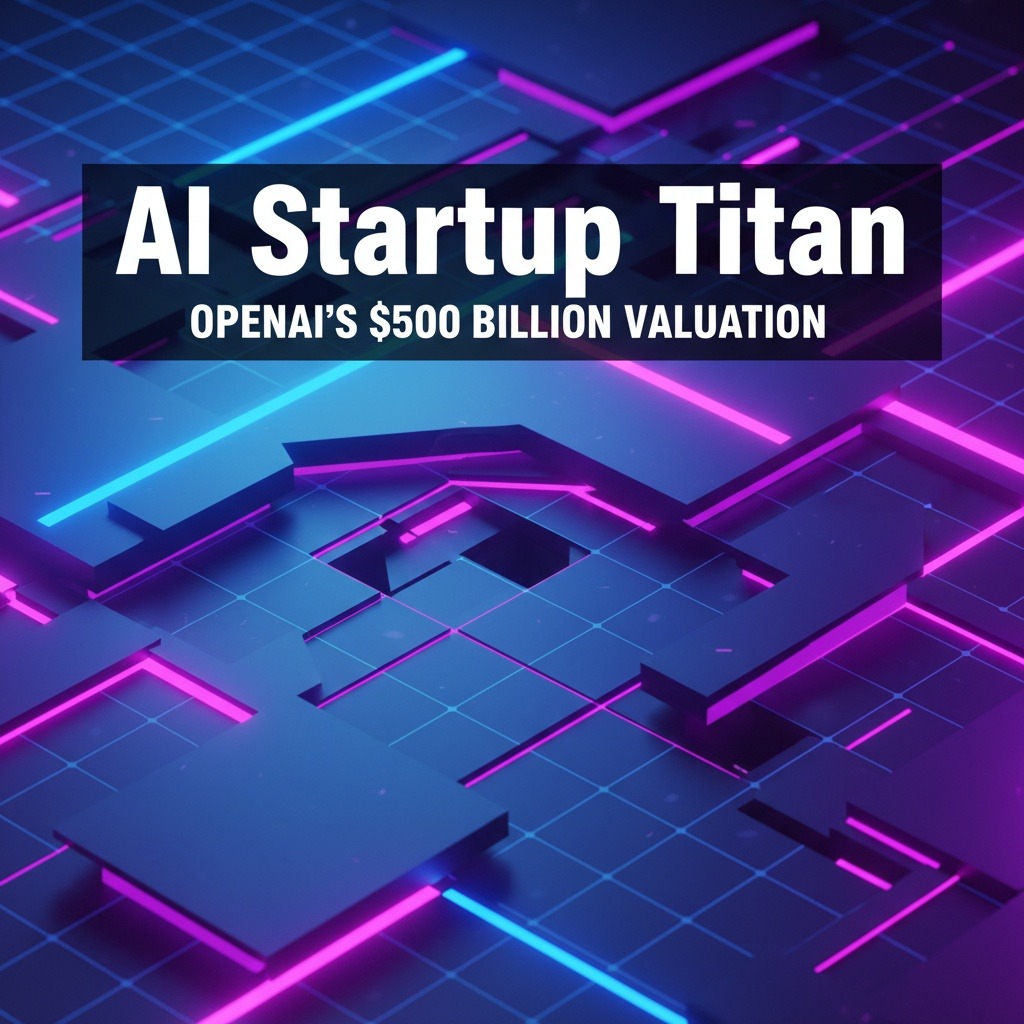In a remarkable development within the artificial intelligence sector, OpenAI has officially become the world’s most valuable startup, achieving a staggering $500 billion valuation following a recent secondary share sale. According to Bloomberg, which cited unnamed sources familiar with the matter, current and former employees of OpenAI successfully sold approximately $6.6 billion in shares to a cadre of prominent investors, including Thrive Capital, SoftBank Group Corp., Dragoneer Investment Group, and firms from Abu Dhabi and T. Rowe Price.
This significant financing round has propelled OpenAI ahead of competitors such as SpaceX, led by Elon Musk, which holds a market capitalization nearing $400 billion. Additionally, OpenAI’s valuation far exceeds that of other startups like ByteDance and Anthropic, which are valued at $220 billion and $183 billion respectively.
As the enthusiasm for AI technologies continues to surge, the growing intersection of artificial intelligence and blockchain has also captured investors’ attention, as both sectors are increasingly recognized as pivotal components of the future digital infrastructure.
When compared to the cryptocurrency market, OpenAI’s valuation dwarfs that of the leading players in the sector. Data from Google Finance indicates that Coinbase, the largest publicly traded cryptocurrency exchange, boasts a market cap of around $89 billion. Notably, prominent crypto entities like Ripple, Circle, and Binance have all remained below the $100 billion mark. In contrast, the stablecoin issuer Tether may come closest to challenging OpenAI’s towering market cap.
In a June 7 statement, Artemis CEO Jon Ma claimed that if Tether were to pursue an initial public offering, its valuation could reach upwards of $515 billion, positioning it as the 19th largest publicly traded company. Tether’s CEO, Paolo Ardoino, responded to Ma’s assertion by calling the projected valuation “a beautiful number,” but expressed that he regarded it as somewhat conservative. Ardoino noted that Tether’s substantial holdings in Bitcoin and gold would yield a more robust assessment of their market value, asserting that there is currently no immediate need for Tether to go public.
The relationship between artificial intelligence and stablecoins appears poised for further development. Mike Novogratz, CEO of Galaxy Digital, suggested that AI agents could emerge as the primary users of stablecoins. This prediction is supported by findings indicating that over 70% of stablecoin transactions are reportedly linked to automated bot activity, according to recent research from CEX.io.
Galaxy Digital is also engaging in the AI sector, having recently secured a $1.4 billion loan aimed at accelerating the construction of its Texas Helios AI data center. This facility is expected to generate more than $1 billion in annual revenue, catering to the needs of AI and high-performance computing operations run by CoreWeave.
As the discussion surrounding AI development grows, concerns about its energy consumption have been raised. Akash founder Greg Osuri warned at the recent Token2049 conference in Singapore that the energy demands of AI might soon exceed the capabilities of current energy grids. He indicated that AI may require alternative energy sources, such as nuclear power, to sustain the intensive training of models. Osuri also advocated for more sustainable practices, including decentralized AI training.
The rapid advancements in AI technology, coupled with its potential synergies with blockchain innovations, signal exciting yet cautious times ahead for both sectors, reshaping the future of digital infrastructure.



